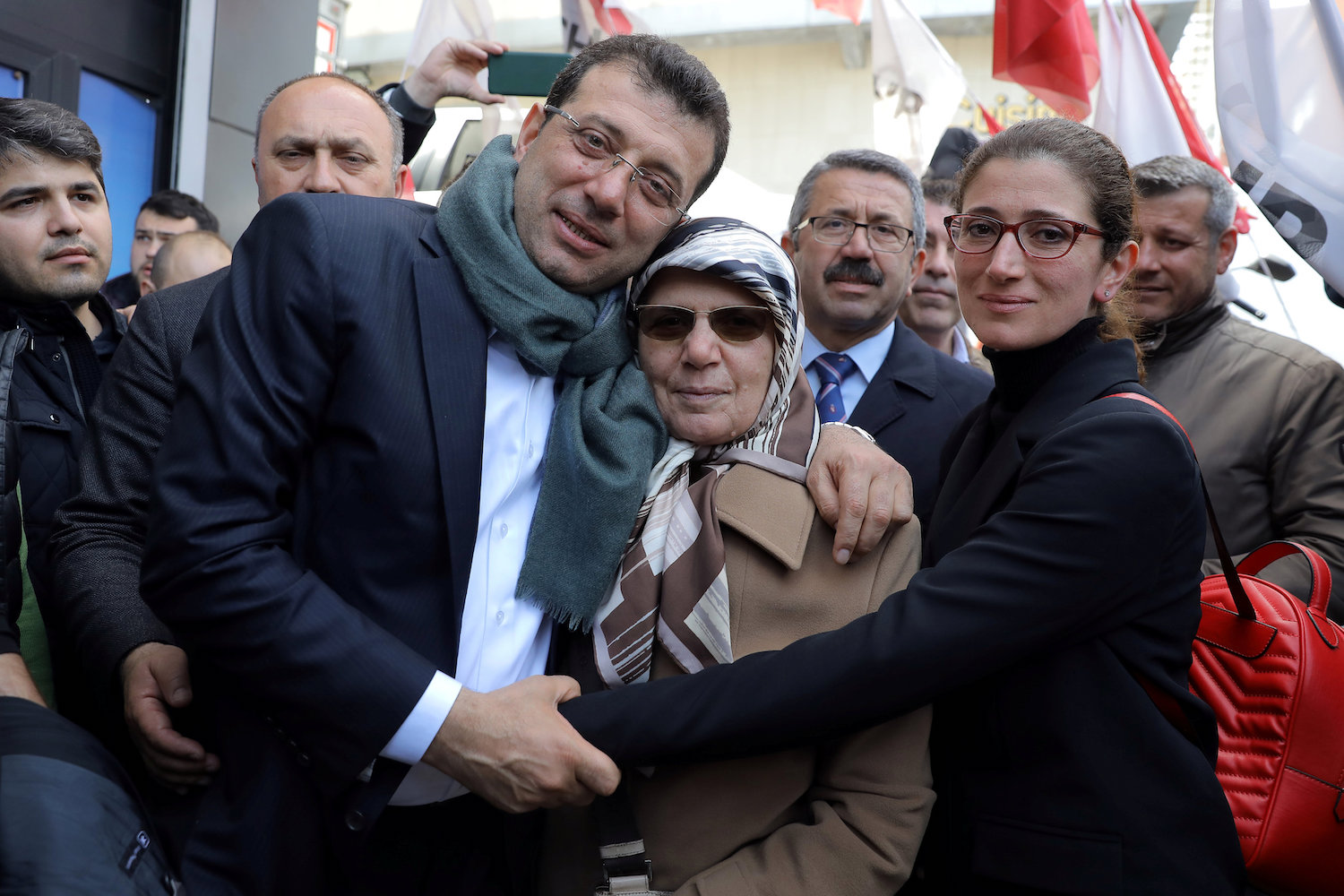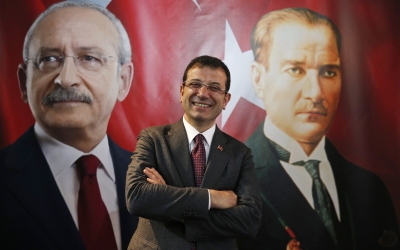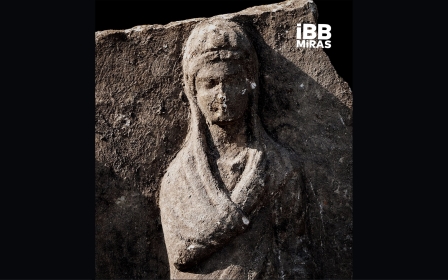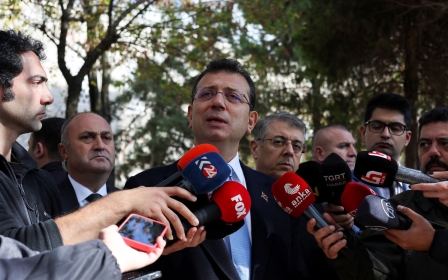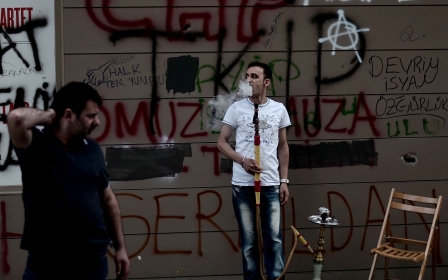Crunch time in Istanbul: Can Imamoglu save the Turkish opposition?
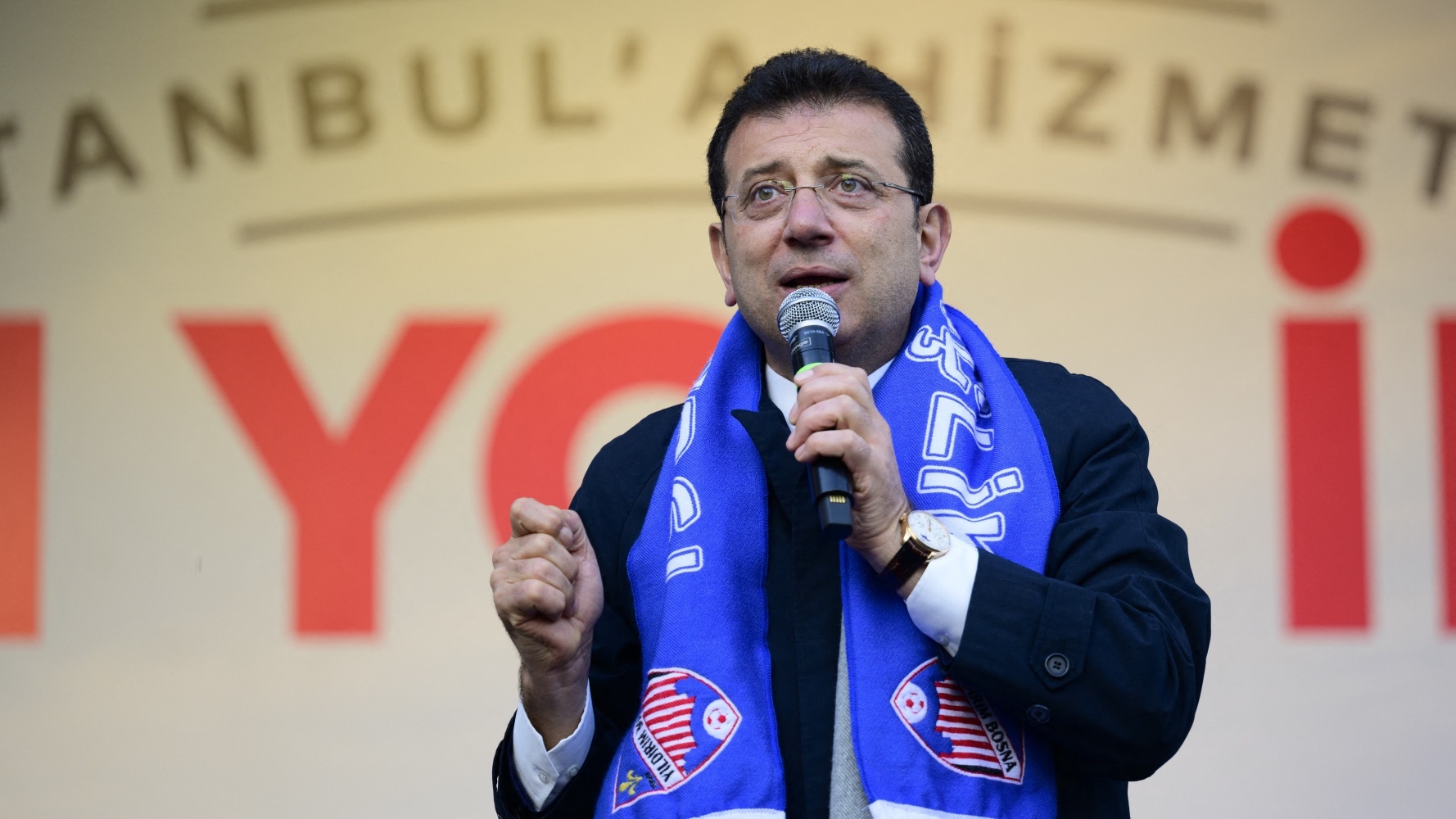
When the Turkish opposition chose Ekrem Imamoglu as their candidate for the Istanbul mayoral elections in 2019, there was an uproar in the Republican People’s Party (CHP).
Many questioned his chances of taking control from the ruling AK Party, which had ruled the city for decades.
Born and raised in the eastern Black Sea coastal city of Trabzon, Imamoglu was a long time member of the CHP and had most recently served as the district mayor for Istanbul’s Beylikduzu area.
He was nevertheless an obscure and little known figure even within the party.
So much so, that critics within the party accused its leader Kemal Kilicdaroglu of fielding a hopeless candidate.
New MEE newsletter: Jerusalem Dispatch
Sign up to get the latest insights and analysis on Israel-Palestine, alongside Turkey Unpacked and other MEE newsletters
Those voices also pointed to Imamoglu’s ties to the construction sector, itself heavily linked to the Erdogan government. Was their mayoral candidate enough of a “social democrat”, they asked, and was he really “anti-regime”?
At stake was one of Turkey’s most important political offices, which oversaw a budget of more than $16bn and was traditionally seen as a launchpad for the presidency.
The country’s President Recep Tayyip Erdogan had made his name as Istanbul’s mayor in the 90s.
Imamoglu’s campaign soon silenced the doubters, however, as he emerged as a serious contender for the role of mayor.
In a campaign in which he cast himself as a man of the people, he comfortably mingled with locals in marketplaces, enjoyed banter with headscarf-wearing housewives, wooed industrialists and patiently debated critics for hours on the streets, as cameras streamed the encounters.
A talented orator, Imamoglu seemed comfortable with all sections of Turkish society, be they religious or secular, reciting the Quran at ceremonies and waltzing with his wife at Republican celebrations.
He also had a distinct advantage. Kilicdaroglu had succeeded in uniting the opposition, bringing the CHP and Turkish nationalist Good Party, known as IYI, into an alliance.
The pro-Kurdish People’s Democracy Party (HDP) also backed Imamoglu by not running any candidate in Istanbul, effectively calling on their supporters to vote for him instead.
A fractured opposition
Imamoglu won the March 2019 elections but the government contested the results, at first calling it too tight due to an approximate 12,000 votes difference, and then accusing him of stealing votes without presenting any proof.
But the CHP candidate was unperturbed. Speaking to his supporters, he said that he was young and ready to fight for the rerun on 23 June, which he won easily with 4.7 million votes, beating his rival, former Prime Minister Binali Yildirim, by an emphatic 600,000 votes.
Five years on, Imamoglu faces bigger challenges; the first is getting re-elected during the 31 March local elections and the second is becoming the leader of the Turkish opposition.
Imamoglu is leading in the polls, which is good news for the Turkish opposition after their dismal performance in the May 2023 presidential elections.
With runaway inflation, deep-set fatigue with AK party rule and low voter satisfaction numbers before the poll, Erodgan still won and delivered a stunning blow to the opposition alliance called the Table of Six.
That result threw opponents of Erdogan into disarray as Kilicdaroglu refused to resign after the unexpected defeat.
Imamoglu’s hold within the opposition camp has been growing ever since. In November, his ally Ozgur Ozel became the chairman of the CHP, ending Kilicdaroglu’s tenure.
The 2023 opposition presidential candidate has not tapped out just yet though, instead preferring to open up an office in Ankara and wait out the result of the local elections, which he expects Imamoglu to lose.
Meral Aksener, the leader of the IYI Party, the second major opposition party, is also disillusioned with Imamoglu and accused him of trying to reduce IYI’s representation in the Istanbul provincial assembly.
She is even running an IYI Party candidate, former Imamoglu ally Bugra Kavuncu, in the contest to become Istanbul’s mayor.
Other Table of Six parties, including former Prime Minister Ahmet Davutoglu’s Future Party (Gelecek) and former Foreign Minister Ali Babacan’s Democracy and Progress Party (DEVA) are also running their own candidates.
Record in power
Imamoglu will have to contend with those challengers, along with the AK Party’s Murat Kurum, while defending his own poor record in office.
The CHP candidate does not have an impressive litany of policy achievements to point to during five years of rule.
In the eyes of many in Istanbul, the mayor has failed to solve persistent problems caused by flooding, snow storms and the maintenance of public transport.
Traffic jams are another source of frustration for voters, who often spend hours in taxis and cars trying to make their way across Istanbul.
Imamoglu claims to have built 60 kilometres of new overground and underground rail and metro lines in his five years in power.
But the AK Party’s Kurum says that number is actually 17km, with the rest having been planned and partially built under the previous government-aligned administration.
AK officials accuse Imamoglu of running a good public relations campaign rather than delivering improved or new services in the city.
The mayor’s antagonism towards Erdogan has also not done him any favours with those who voted Imamoglu for mayor and Erdogan for president.
Yet Imamoglu is still leading in opinion polls conducted in March, albeit with numbers still within the margin of error.
In 2019, he was the obscure outsider posing a long-shot challenge to the AK Party but today he is one of Turkey’s most famous politicians, able to garner rock-star welcomes wherever he goes.
Imamoglu’s main opponent, Kurum, lacks charisma and popular appeal, and his lacklustre campaign statements are full of gaffes.
The mayor has a team of experts and technocrats who appear to fit in better with Istanbul’s urbanite image than Kurum’s staff, who are mostly from the Anatolian heartlands and unable to impress Istanbul’s trendy residents.
Alliance with pro-Kurdish party
Kurum’s biggest selling point is his promise to launch urban renewal projects, which are essential to mitigate the risk of damage from an earthquake widely expected to strike in the coming years.
But the AK Party candidate is associated with the problems many hold his government responsible for. Inflation has not calmed and businesses are struggling to get lines of credit.
“If Kurum loses it would be because of pensioners,” says Ahmet, 43, a shopowner in Istanbul’s Uskudar. “They make below the minimum wage.”
Nevertheless, Kurum’s campaign insiders are hopeful that they can pull off a victory with a small margin over Imamoglu.
Imamoglu will benefit from the fact that the pro-Kurdish DEM party, formerly the HDP, will not run a strong campaign against him.
Their choice for mayor, Meral Danis Bestas, is not expected to get more than five percent of the vote.
Ahmet Saymadi, a former top official at DEM, said earlier this week after a closed-door meeting in Istanbul that the DEM and Imamoglu’s CHP were in alliance at the district level in Istanbul, with DEM candidates running under CHP lists.
“We are participating in the elections in 22 districts of Istanbul on the CHP's lists. In cases where municipalities are won there, we will have deputy mayor friends,” he said.
“They will establish the DEM Party group in the Metropolitan Municipality Assembly. This is the first time we will have such serious local representation in Istanbul,” he added.
Saymadi says that DEM's Istanbul mayoral candidate Bestas was only running to remind the DEM voters that they have a party.
He also suggested that the decision to ally with CHP was taken by “the friends you do not see”, meaning the Kurdistan Workers’ Party (PKK) leadership in the Qandil Mountains.
The DEM has since distanced itself from Saymadi's comments.
There is a consensus in Ankara that if Imamoglu wins, he would eventually claim the CHP leadership, since Ozel is perceived as an interim party chairman.
If he wins, Imamoglu will have to unite a divided opposition, or at least re-energise it since it looks in disarray and not a viable alternative to Erdogan’s cabinet, which is full of respected figures like Finance Minister Mehmet Simsek and Foreign Minister Hakan Fidan.
There is a consensus in Ankara that if Imamoglu wins, he would eventually claim the CHP leadership
Some CHP insiders believe Imamoglu might prefer to avoid forming a grand coalition like the one that took on Erodgan in 2023.
“If he wins in Istanbul, he will win with CHP alone,” one CHP source says. “He might not seek a coalition in the 2028 presidential elections.”
Imamoglu’s biggest challenge would be rebuilding a political party that is totally disassociated with modern politics, inward-looking and cut off from global issues.
The CHP’s image among the conservative masses is still stained due to its controversial past when it ran the country as a one-party regime until 1950.
Kilicdaroglu managed to make peace with the religious masses, accepting women with hijab into the ranks of the party and meeting religious leaders. He may eventually emerge as a strong candidate against Erdogan or whoever succeeds him in 2028.
If Imamoglu loses the Istanbul elections, there is almost no doubt he would still claim the CHP leadership. But he would likely be a Kilicdaroglu 2.0, a leader who can make noise but not enough to be elected to lead the country.
This is why Imamoglu’s political future hangs in the balance as we approach Sunday’s vote.
Middle East Eye delivers independent and unrivalled coverage and analysis of the Middle East, North Africa and beyond. To learn more about republishing this content and the associated fees, please fill out this form. More about MEE can be found here.


